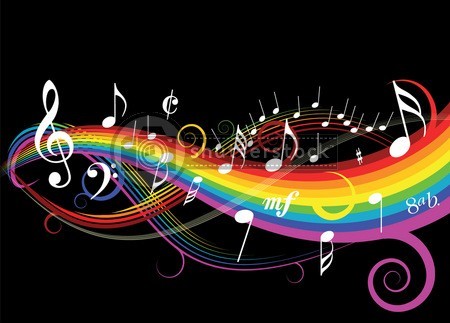|
Here's an old article I wrote for SwiftEconomics on the music industry and why the mediocre rise to the top while the truly talented languish in obscurity. Enjoy:
As an amateur guitar player I can say that few things bother me more than the world of professional music. It’s simply all upside down. This was brought home to me when I was invited by some friends to a free concert played at a local bar in Kansas City. Samantha Fish was playing, whom I, like most of you probably, had never heard of. Here’s one of her songs and you can get long previews of her new album here.
While listening to her I couldn’t help but think “why isn’t this girl famous?” She’s got a great voice and is wicked good at the guitar (check out the solo at 3:49) and even the most superficial, Hollywood types have to admit she’s quite pretty. As pretty as this broad at least:
I guess these dime-a-dozen, corporately regurgitated beats can be good to dance to if that’s your sort of thing. But I’d break it down this way: Katy Perry is relatively pretty, a slightly above average singer, perhaps a decent dancer although I’ve never seen it, plays no instrument and I’m almost positive she doesn’t write her songs (not that the trivial drab she sings with three chord progressions would be anything to be proud of).
Yes, art is all subjective and maybe I just got a thing for bluesy rock (and pretty girls who play guitar) but is anyone going to seriously say that Katy Perry is more talented than Samantha Fish? I would laugh in your face. Indeed, the market seems to have failed here. Although in my beloved market’s defense, even while the most talented may not reach the top, there will be plenty available to choose from. The producer end is all messed up, but with no barriers to entry and lots of ways to release music, there will be more than enough of any genre to satisfy the consumer end of things. My favorite musician of all time is Chris Cornell [Ed. RIP Chris], and now that he’s post-Timbaland craziness, he just completed an acoustic tour of all his old stuff. Here’s “Burden in My Hand” from his Soundgarden days (which are now, by the way, reunited, OMG indeed):
Pure awesomeness… Still, even Chris Cornell’s fame pales in comparison to Katy Perry, Britney Spears and those assholes who make up Nickelback (yes Nickelback sucks, see here). Why is this? Is it just our unstoppable cultural decline?
The Cato Institute released an interesting piece arguing against that by saying in part that “The music of Bach, Mozart, Haydn, and Beethoven is more accessible to today’s listeners than it was to the listeners of the 18th and 19th century.” True, but that’s not really the issue at hand. Perhaps, the very accessibility of such music is the reason why the likes of Mozart and Beethoven have been replaced with the likes of Perry and Spears. Without attempting to sound like an elitist snob, music and other arts have very likely seen a decline because of the mass appeal an advanced society provides. Normal people may just want a song to rock out to or dance to or teeny bop with. Back in the day when most people were starving, only the most affluent got to enjoy music and other arts with any consistency, at least the more polished sorts that were subsidized by patron saints and the like. With the utter saturation of art in the world today, music being but one example, marketers must try to build a brand around individual singers and bands. Katy Perry is obviously not particularly talented, but she can mix simple, recycled but relatively catchy beats with a very well-refined brand name that provides plenty of material for mindless tabloids and Access Hollywood drivel. And that sells regardless of what sort of crap she puts on her records (of which there is, unfortunately, much evidence to attest to). Technology has rapidly expanded this divide. As I mentioned previously with regards to income inequality: Technological changes can bring this about as well. Musicians used to have a fairly safe profession. There were gigs all over the place. Then some asshole invented a way to record music and all of a sudden the celebrity culture was born. On the one hand you have Beyoncé and Justin Timberlake making tens of millions of dollars. On the other, you have some down-and-out garage band trying to sell CDs they burned at home, after a concert they played in some hole-in-the-wall bar on a Friday night to a bunch of disinterested yuppies. Innovation and technology are great, but they can create inequality, and we’ve had plenty of innovation in the last century.
Thus cult of personality became more important than talent. I would argue that intellectual property has also played a part in this. Songs would be much less tied to their writers if IP were reduced or eliminated entirely. I think this would make it harder for the cults of personality and celebrity culture to flourish with regards to music because people would follow the songs more than the artists. Indeed, it would certainly hurt artists on the top of the charts to curtail IP, but it may give a boost to those who are on the lower rungs of popularity. I recommend Stephan Kinsella’s lecture against intellectual property which discusses this subject in more detail.
Regardless, something is seriously wrong with who makes it and who doesn’t in the world of music. Photo Credit: Get This Ripped
Comments
|
Andrew Syrios"Every day is a new life to the wise man." Archives
August 2018
Blog Roll
Bigger Pockets REI Club Tim Ferris Joe Rogan Adam Carolla MAREI Worcester Investments Entrepreneur The Righteous Mind Star Slate Codex Mises Institute Tom Woods Consulting by RPM Swift Economics Categories |

 RSS Feed
RSS Feed


